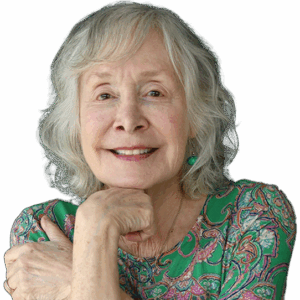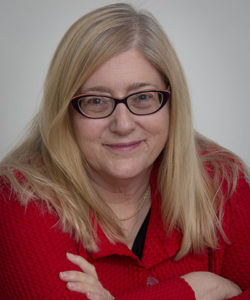My Lusty Encore Career
Sexual pleasure is a human treasure. This revelation did not come to me as some blinding flash of the obvious. From getting my period at eleven to being post-menopausal at 55, struggling with vaginal dryness and lack of desire until I was in my sixties, breast cancer at 67 and again at 72, I have experienced the perspective of sex as a dichotomy.
On the one hand, sex is considered a taboo subject, steeped in stigma, and its primary purpose is for procreation. On the other hand, sex sells: The adult entertainment industry’s projected 2025 revenue is $71.63 billion. Revenue from the sale of sex toys in 2025 is expected to exceed $41.94 billion.
Then, there’s the prevailing ageist and sexist belief that the end of women’s fertility—menopause—marks the end of our sexuality.
Not so fast. There is no age limit on sexuality and sexual activity, according to Stephanie A. Sanders, PhD, a senior scientist at The Kinsey Institute. People who have sex live longer. There is no age limit on sexuality and sexual activity. Walter M. Bortz, MD, who taught medicine at Stanford University and did extensive research on aging, declared: “Use it or lose it.” And as Lisa Mosconi points out in her book The Menopause Brain, after menopause many women experience new confidence and a renewed zest for life which they can bring to their relationships.
On February 7, 2025, my book Best Sex Ever After Menopause: Transforming Your Sexual Pleasure Through Mindset with Healing and Aphrodisiac Plants was published.
How did I become an author about sex at 80?
First, some personal data. I married at 21. Had my son at 22. Divorced at 36. I have been married to my seven-years-younger, adoring, lusty, “I’ll-do-anything-you-want” husband for 40 years. Fifteen years ago, post menopause, I declared, “At my age sex doesn’t matter. It’s an inevitable part of aging.” I was suffering from vaginal dryness and a lack of desire. Zero. Zilch. Having had breast cancer in my right breast at 67 and in my left breast at 72 I was told (rightly or wrongly) that hormones were not an option. My husband felt rejected and inadequate. And so began my journey to a reborn life of sexual passion.
Here’s what I discovered:
- The oil made from the plant sea buckthorn, taken as a supplement, healed my vaginal dryness. A research study published in November 2014 explains that estrogen levels are not altered in any way. The study’s authors attributed the improved epithelial integrity of vaginal mucosa in study subjects to Vitamin E, carotenoids, and most significantly to the high levels of Omega 7 in sea buckthorn.
- As Dr. Norman Doidge explores in his book, The Brain that Changes Itself, our brain’s neuroplasticity enables us to change our dysfunctional patterns of thinking and behavior to new skills and mindsets—including about sex.
- Open, effective communication is the key to positive sexual intimacy in relationships. Karl Pillemer interviewed 700 older Americans on love and relationships for his classic book, 30 Lessons for Loving. Their advice can be summarized as “Talk, talk, talk.”
- While cannabis has a complex relationship with sexuality (depending on dosage, gender, and other factors), research shows that many women in the study who use cannabis achieve orgasm more easily and with greater satisfaction.
As a former teacher, and then a designer of training programs for the employees of Fortune 500 companies, federal and state agencies, and non-profits, I developed concrete ways to measure learning’s key goal: change for the better in what people do, achieve and feel, with specific criteria.
Applying that standard to my personal and sexual life, what are my criteria for the best sex ever after menopause?
Sex is pleasure that’s arousing, sensual, erotic, orgasmic, ecstatic, transcendent, blissful, transformational, with love as the foundation.
And what, then, is love? The dictionary definitions felt inadequate. I wrote my own.
Love is accepting vulnerabilities—mine and others’—and connecting with the core good of our humanness: appreciation, caring, commitment, compassion, contentment, empathy, fulfillment, friendship, forgiveness, generosity, honesty, hope, humility, integrity, intentionality, intimacy, kindness, laughter, optimism, patience, resilience, respect, support, and trust.
Then for me, there’s another dimension of love:
How our energies interact, compliment, expand, renew. Together, there is: awe, courage, creativity, empowerment, enthusiasm, inspiration, joy, passion, transcendence, transformation.
So how has my my lusty encore career worked out?
How has all this learning come together for my husband and me?
Intentionality is fundamental. We’re long past can’t-wait-to-rip-our-clothes-off, spur-of-the-moment sex. As Ester Perel writes in her book Mating in Captivity, “There’s a powerful tendency in long-term relationships to favor the predictable over the unpredictable.” “Instead,” she writes, “planning creates anticipation. Anticipation implies that we are looking forward to something. It is an important ingredient of desire and planning for sex helps to generate it.”
We plan playdates. A morning, afternoon, whole day, weekend for giving and receiving sexual pleasure. And when one of us is horny and the other is not, self-pleasure is our individual activity. For those of you without a partner, the physical and emotional benefits of sexual pleasure are the same!
The specific Ws—Who, What, When, Where, Why—as well as How—are in my book.
My encore career is to promote empowering knowledge for postmenopausal women who want to continue to enjoy the pleasure and benefits of their sexuality.
My hope is for everyone to live life with an abundance of love and universal sex positivity.
You can find carol at: https://www.drcarolremz.com/


